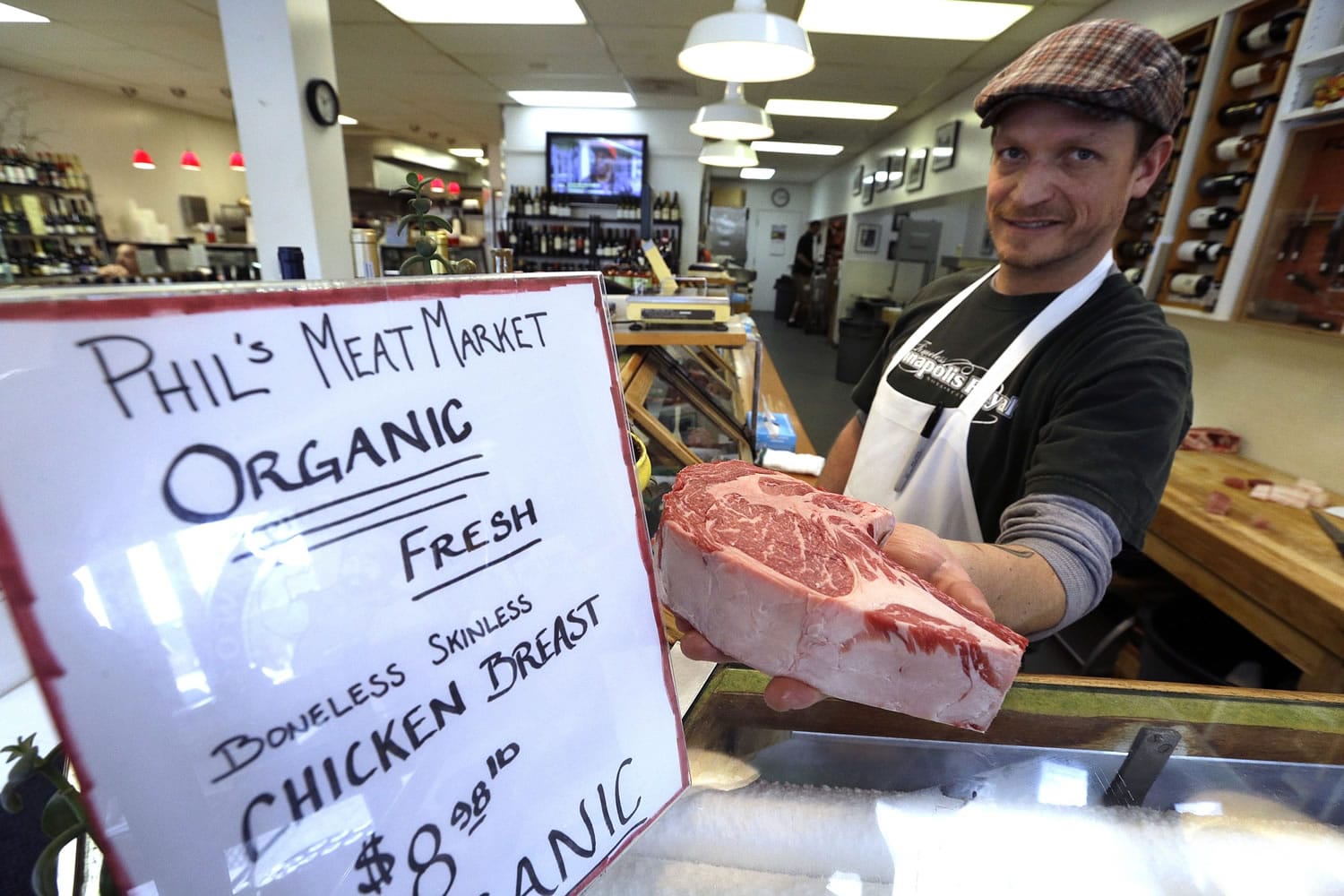PORTLAND — For decades, farmers have routinely fed antibiotics to livestock to fatten up the animals and protect them from illnesses amplified by confined conditions.
But critics say repeated use of antibiotics has made bacteria more resistant to the drugs, resulting in people developing antibiotic-resistant infections. As public pressure mounts nationally against antibiotics, Oregon legislators are debating whether to curtail their use in agriculture.
If the legislation passes, Oregon would be the first in the nation to mandate stricter rules on livestock antibiotics.
Scientists, doctors and public health officials are unequivocal about the need to stop the spread of antibiotic-resistant superbugs. Some farmers — including industrial operations — have already made the switch. And many food chains and restaurants now offer antibiotic-free meat.
The federal government is also pushing to phase out antibiotics used to improve animal growth. Proponents of Oregon’s bill say that’s inadequate, because the move still allows operators to administer the drugs to prevent illness — and many farmers give them to animals that are not sick.
But some farmers and veterinarians say the bill would essentially bar them from using antibiotics to prevent disease outbreaks — a crucial tool in the treatment of large groups of animals.
Unlike in human medicine, on a farm it’s critical to treat the herd at the first signs of a bacterial infection, said Charles Meyer, a Grants Pass veterinarian and president of the Oregon Veterinary Medical Association.
“When symptoms tell us the disease process is going to start, it will go through that pen of cattle,” Meyer said. “The best way to stop it before it spreads like fire is by administering antibiotics” to the whole herd.
A bill limiting preventive use would result in more animals’ getting sick and dying, increased drug use and a rise in antibiotic resistance, Meyer said.
The Centers for Disease Control and Prevention estimates antibiotic-resistant bacteria cause 23,000 human deaths and more than 2 million illnesses each year in the U.S. Doctors say resistant superbugs cause infections and make antibiotics ineffective in curing common diseases.
The overuse of antibiotics by patients, doctors and hospitals is partially to blame, experts say. But farms are another big part of the problem.
Over 70 percent of the antibiotics produced in the U.S. are used in agriculture, government data shows, and most of those antibiotic types are also used in humans. Farmers can buy the drugs in feed stores without prescriptions. The CDC says that practice contributes to the spread of superbugs that can be transmitted to people through food, water, or direct contact with the animals.
“We’re in danger of losing antibiotics,” said Dave Rosenfeld, executive director of the consumer advocacy group OSPIRG that brought the bill idea to legislators. “We need to protect ourselves, so at least Oregon is not breeding superbugs.”
Farmers say the bill isn’t needed because the Food and Drug Administration is working to phase out use of low-dose antibiotics for animal growth by December 2016 and to increase veterinary oversight over the drugs.
But critics point to loopholes: Many of the antibiotics are used in low doses for routine protection from disease, not for growth. And some antibiotics previously used for boosting growth can also be used for disease prevention, meaning farmers may be able to continue using them.
Several states have unsuccessfully tried to pass restrictions, including California, New York, West Virginia, Pennsylvania and Minnesota. Dozens of city councils have passed resolutions calling for an end to the overuse of antibiotics in farm animals.
And in Congress, a bill seeks to prohibit administering antibiotics on farms for disease control — unless it’s necessary to prevent or reduce the risk of disease transmission.
Oregon’s bill mirrors that legislation, but opponents say its language is too restrictive.
“I would hate to lose our ability to use antibiotics on a case-by-case, as-needed basis,” said Gordon Satrum, CEO of Canby-based Willamette Egg Farms, which houses hundreds of thousands of egg laying chickens. “If we had some sick birds, we would want to be able to use the drugs and get them healed up.”
Satrum says his company has not routinely fed antibiotics to its chickens for 10 years, but instead requires staff to go through foot baths, wear uniforms and disinfect their hands every time they come in contact with the animals.
Other farmers are supporting the bill.
“I don’t use antibiotics because my animals are clean and healthy and don’t need them. And because I’m not willing to put those things in my body,” said Chrissie Manion Zaerpoor, owner of Kookoolan Farms in Yamhill. The farm is the largest small chicken producer in the state, raising 8,500 birds a year and selling their meat at farmers markets and through farm shares; it also raises antibiotic-free grass-fed beef.
Meyer, the veterinarian, said curbing the practice of farmers buying their own antibiotics-laced feed would be a great step forward.
“Let’s get antibiotics out of the feed store and make it available to farmers on a prescription basis only,” Meyer said.
Still, he conceded, some vets may be under pressure to overprescribe the drugs, just like human doctors.



